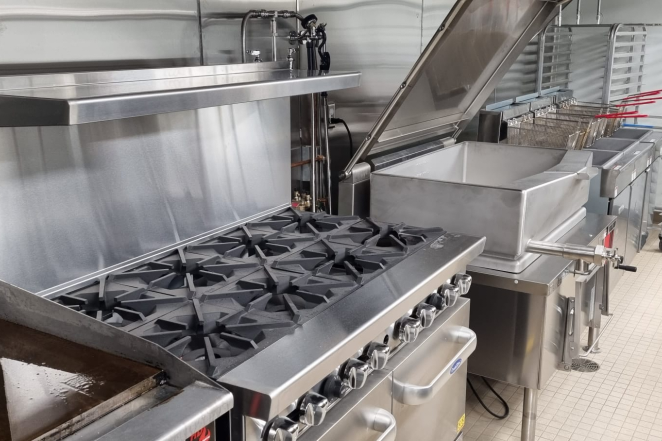As the sun sets on another unforgettable summer at your camp, there's a crucial task that awaits your dedicated kitchen staff: shutting down the kitchen for the season. While it might seem like a straightforward process, proper kitchen shutdown involves more than simply turning off the stoves and locking the doors. It's a meticulous process that ensures the kitchen remains in top-notch condition during the off-season and is ready to shine brightly when campers return next year. In this article, we'll delve into the importance of shutting down your camp kitchen and provide a comprehensive guide on how to do it effectively.
The Importance of Proper Camp Kitchen Shutdown
- Preserving Equipment Longevity: Your camp kitchen is home to an array of valuable equipment, from stoves and ovens to refrigerators and dishwashers. Properly shutting down the kitchen ensures that these machines are cleaned, maintained, and stored correctly, which can extend their lifespan and save your camp money in the long run.
- Health and Safety: Camp kitchen shutdown isn't just about maintaining equipment. It also plays a crucial role in maintaining the health and safety of your staff and campers. Leftover food, improperly stored ingredients, and unclean surfaces can lead to pest infestations and foodborne illnesses if not addressed.
- Efficient Reopening: A well-executed kitchen shutdown paves the way for a smooth reopening next summer. Imagine the frustration of arriving at camp to find a disorganized, unclean kitchen that hampers the start of the season. By taking the time to shut down properly, you set the stage for a seamless transition when campers return.
Step-by-Step Guide to Camp Kitchen Shutdown
- Plan Ahead: Start your shutdown process a week or two before the last day of camp. This gives you ample time to create a comprehensive checklist and allocate tasks to your staff.
- Deep Clean: Begin by conducting a thorough cleaning of all kitchen areas. This includes scrubbing countertops, cleaning ovens and stovetops, and sanitizing storage spaces. Remove all perishable foods and ensure that non-perishables are securely stored in airtight containers.
- Empty Refrigerators and Freezers: Remove all items from refrigerators and freezers. Thoroughly clean and sanitize the interiors. Leave refrigerator doors ajar to prevent mildew growth.
- Inspect and Maintain Equipment: Perform a detailed inspection of all kitchen equipment. Address any issues immediately or schedule repairs. This is also a good time to lubricate hinges, change filters, and perform routine maintenance tasks.
- Pest Control: To prevent unwanted guests during the off-season, thoroughly clean all corners, crevices, and storage areas. Seal any potential entry points for pests.
- Dispose of Waste Properly: Dispose of waste following camp regulations and local environmental guidelines. Recycle what you can and dispose of non-recyclables responsibly.
- Inventory and Storage: Take stock of your kitchen supplies and inventory. Properly label and store items in a tidy and organized manner. This will make restocking and meal planning easier when the camp reopens.
- Communication: Update your kitchen staff on the shutdown process and their responsibilities. Encourage open communication so that everyone is on the same page and can contribute to a successful shutdown.
- Document Everything: Keep a detailed record of your shutdown procedures, equipment maintenance, and any repairs performed. This documentation will serve as a valuable reference when preparing to reopen the kitchen.
- Secure the Kitchen: Lock all doors and windows securely. Consider using pest-resistant measures like traps or repellents, especially if your camp is located in an area prone to critters.
Shutting down your camp kitchen at the end of the summer is a task of paramount importance. It goes beyond cleaning countertops and turning off the lights; it's about ensuring the kitchen's longevity, maintaining health and safety standards, and setting the stage for a successful reopening. By following the step-by-step guide outlined above, you'll not only protect your investment in equipment but also ensure that your camp kitchen remains a vibrant and productive space for kitchen staff for years to come. So, bid adieu to another memorable summer, and get ready to welcome the next one with a kitchen that's primed and ready for action!
Need help with your Camp Food Service?
Email: [email protected]
Website: Contact Us
Phone: 954-607-2231

